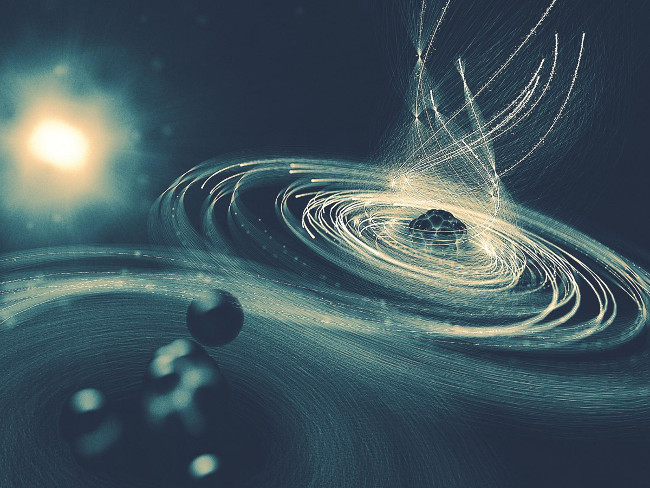Germany successfully created the 'black hole' in the molecule with the world's most powerful X-ray beam
A molecular black hole was successfully created by the German scientists in the laboratory by projecting the world's most powerful beam of X-rays, the results of which were published in the journal Nature.
- Learn about black holes, white holes and deep holes
- If people fall into a black hole, what horrors will await them?

Simulation of the molecular black shape created by German scientists in the laboratory.(Photo: DESY.)
The crystal of iodomethane compound is 100 times stronger than a beam of X-rays, the intensity of all sunlight converging on a baby spot on the Earth. The crystal contains a large and heavy iodine atom that can interact with X-rays.
Immediately, X-rays removed all negatively charged electrons on iodine atoms, only retaining positive electrons. These positive charges are very strong, they absorb all the remaining electrons in the molecule within a few millionths of a billionth of a second.
The X-ray beam removed 54 of the 62 electrons of the molecule, creating the most powerful positively charged iodomethane molecule ever observed. This causes the molecule to explode into small pieces because it cannot bear such a large charge.
According to Robin Santra, the lead author of the study at the Center for Free Electron Laser Science in Germany, the force of charged iodine atoms affects electrons larger than the gravitational force of black holes in the universe. But the force that makes up the attraction of a molecular black hole is the Coulomb force, not the gravitational force like black holes in the universe.
This success helps scientists better understand the structure of viruses and bacteria. At the same time, it also helped them adjust how to use the Linac Coherent Light Source Free-electron device at the SLAC National Accelerator Laboratory in the US, the world's most powerful X-ray source today.
You should read it
- ★ A new discovery about the strange interaction between cosmic black holes and light
- ★ Detecting monstrous black holes, 20 billion times larger than the sun and growing 'fast'
- ★ Find out how to weigh black holes based on galaxy spiral arms
- ★ The discovery of a giant black hole, 70 times the mass of the Sun in the Milky Way, challenges every theory
- ★ Discover the most bizarre black holes in the mysterious space universe